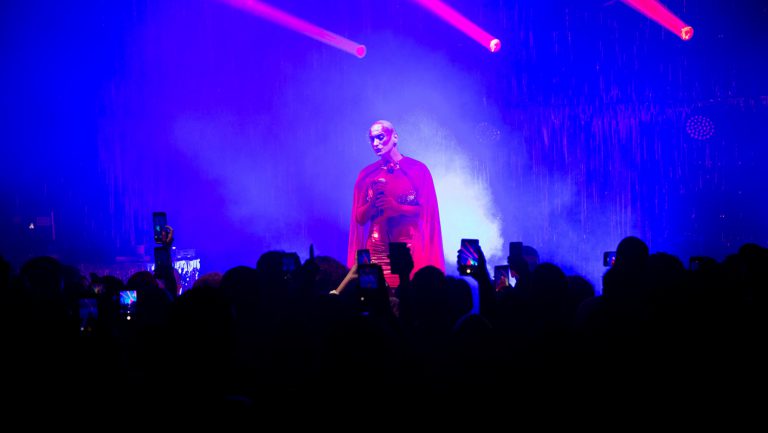
Kübra Uzun (Foto: Ateş Alpar)
Yazının Türkçe versiyonu için linke tıklayın.
The past few years saw Istanbul’s queer nightlife flourish and expand. A scene developed with its own venues, musicians, DJs, performers, and producers. Ilgaz Yalçınoğlu sets off to understand the factors and conditions of this development in conversation with its leading figures.
It is a Saturday night at Şahika Bar, located in the Nevizade area of Beyoğlu, famous for its taverns and bars. The bar, whose main part is located on the terrace of the high building, is slowly getting crowded. However, there is a heaviness and cautiousness to anyone entering the bar. It is not difficult to understand why: with the restrictions introduced due to the COVID-19 pandemic, many bars and entertainment venues had to close their doors until an unknown date. Şahika was able to open again after a five-month-break at half capacity only a week ago, in mid-August. Now in the second week, people are still not sure how to carry themselves, everyone stands around the tables, close to the group with which they came together. In addition to insecurity that comes with the new regulations, they seem to have forgotten how to have fun outside over the past few months. They seem not to know how to use the free space in Şahika, which before the pandemic used to be jam-packed most nights. The manager of the place, Üzüm Derin Solak, standing in the DJ cabin, is caught up in the disco songs she likes playing best.
Then something happens that I cannot wrap my head around. Suddenly, I find myself dancing with those who just moments ago were not even keen on raising their heads to look around. It feels like an explosion took place that is bringing everyone together to dance. At one point, Üzüm has to intervene – one of the rules of the new normal is that people can only dance around their own table. There are rumors that the police check rooftop venues using drones. Üzüm starts to play down-tempo Arabesque songs to calm down the dancers. Although the yearning for music and the desire to celebrate together can be read in people’s eyes, they respect Üzüm. It is a special relationship built on the amount of trust Üzüm shares with her guests after years of creating and sustaining spaces in which woman and queer people can feel comfortable. This is even more remarkable considering the difficult situation the pandemic caused for places where music is played.
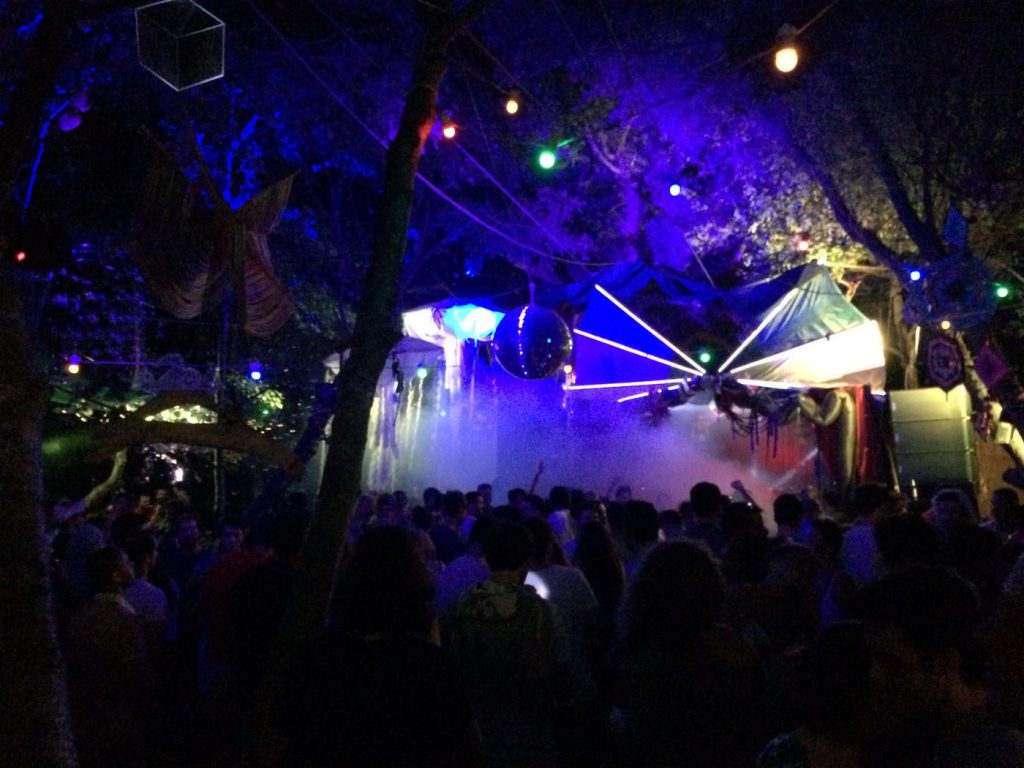
As I reminisce and reflect on this night at Şahika, I find myself trying to remember what we lost in pandemic, albeit hopefully temporarily. The scene that Şahika is a part of has existed only for a relatively short period of time. Only in the past ten years we were finally becoming able to talk about a queer nightlife with principles of its own, a queer music scene in Istanbul with its own musicians, DJs, performers and producers. Although Beyoğlu has had a lively queer entertainment and nightlife since the early 1990s, the queer venues that existed before the 2013 Gezi Protests were mostly commercial bars and clubs that primarily appealed to cis gay men. Despite the fact that these primarily commercial venues were often criticized for discrimination in their door policies and their economic exploitation of their customers, they dominated the understanding of queer night life due to the lack of any alternatives.
However, at the beginning of the 2010s, things started to change. As the idea of nightlife as a political agent was gaining traction after the municipality of Beyoğlu, then the heart of cultural and political activity in Turkey, prohibited bars from setting up tables in the streets in 2011, the Gezi Park protests caused a breaking point. While the oppression and prohibition of social movements, including the LGBTI* movement fighting for justice through state authorities increased immensely after the Gezi Protests and thus narrowed down the spaces of resistance, self-organization within the community gained a new meaning. In the following period, the opening of queer clubs with principles of inclusion and anti-discrimination created spaces where the resistance and the struggle manifested itself for the most part in the absence of protests and political events. At the same time, they started to influence the nightlife and electronic music scene of Istanbul. In order to understand the emergence and influence of the spaces that came into existence in this era, in which activists were DJs and DJs were activists, I knocked on the door (or rather clicked the Zoom link) of the figures who led the way.
From Leyla Teras to Leyla Alt and Anahit: Paving the Way
People are getting more and more impatient with each passing day of the pandemic, M. Deniz Deniz thinks. “I’ve had people telling me the whole movement is waiting for what I am going to do next”. This expectation is specifically targeted at Deniz as they have a history as a manager in various bars and clubs. While ten years ago, there were more predefined ideas about who would listen to which music and where, Deniz transgressed these boundaries with every venue they opened. Their latest project, Anahit, could however not be opened to the difficulty of providing hygienic safety in an interior space during the pandemic and was thus closed after the landlord demanded the total sum of the already high rent. The club was the most up-to-date expression of Deniz’s realization of the concept they concisely sum up as „many sounds, many colors“. It is enough to take a brief look at the pre-pandemic program in order to understand this claim. Anahit, which was named after the Armenian accordionist Madam Anahit, is one of the symbolic places of Istanbul’s Beyoğlu district, is a place where many different types of performances and gatherings from techno parties to acoustic concerts and stand-up shows take place and where both the favorite names of the alternative scene, such as Jakuzi and Nil.ipek, and drag artists with little stage experience face big crowds.
Deniz’s involvement with the music industry and nightlife had started with a social responsibility project. The contacts they made while coordinating the „No War in Iraq Coordination Board,“ which they joined volunteering at the Lambda Istanbul LGBTI* Association, paved the way for a career in nightlife. After having managed many spots, the first place they ran to which people would come primarily for the music was Leyla Teras. Leyla Teras aimed to provide space for various music cultures and hosted countless concerts by buskers. “At that time, street musicians from all over the world were coming to Istanbul. As they would visit the city, they would definitely perform at Leyla,” says Deniz. However, Leyla Teras, despite hosting a slew of solidarity parties did not meet Deniz’s expectations of queer entertainment. “The place was losing its audience when I tried to do something different musically. I couldn’t afford it because it wasn’t a place I ran on my own. The demands and the expectations of the audience had started to bother me. At the same time, saying we are a queer-friendly place started to become a contradiction. I wanted to be able to say that you are what you are, and we were a hetero-friendly place.“
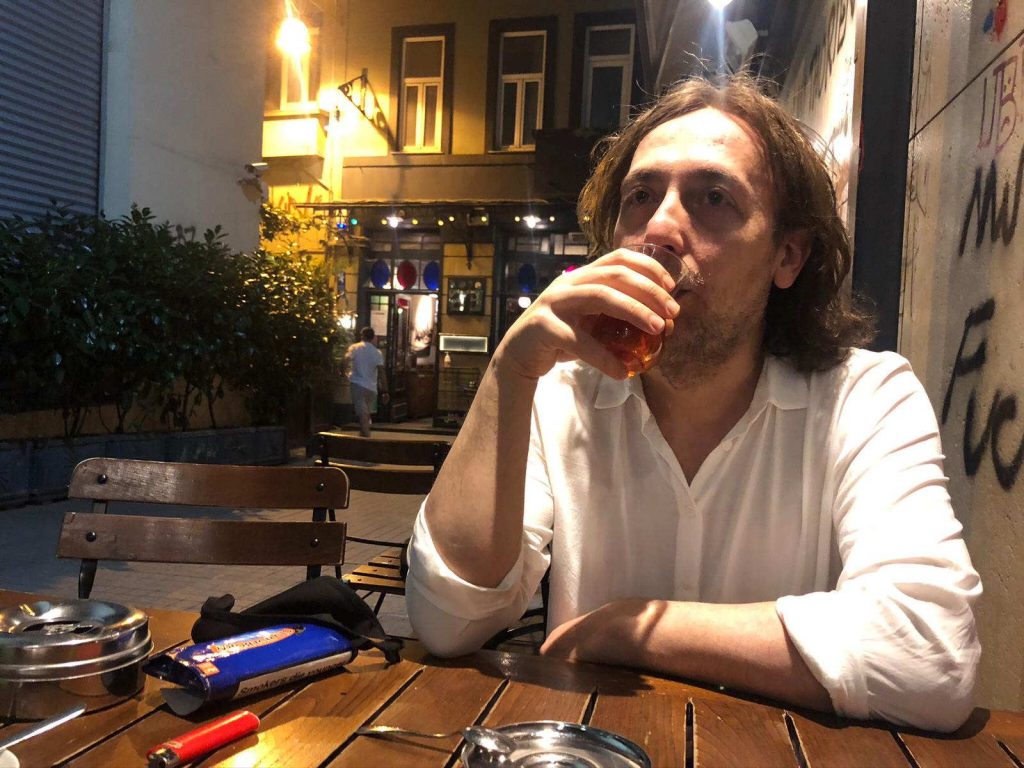
A place that Deniz opened and put this idea into practice was Leyla Alt. While Deniz’s notion of a queer space is based on the principle of not questioning who the entrants are, this understanding also included the music selection: Leyla Alt was opened with the aim of creating a place where music lovers of all kinds, from minimal techno to arabesque, would not be discriminated against for any reason. This small but intimate bar, which they created together with Üzüm, was a place that was regularly jam-packed during its existence and still lives on in the memories of its regulars. The building Leyla Alt was located in now hosts a hostel. While Üzüm took over the management of Şahika and made it queer, Deniz started to realize their dream of listening to all kinds of music in places where they would feel comfortable by opening Anahit. “My dream was to have a concert, a show, or a party in a queer venue. In other places, however friendly they may be, you are the Other. „
Deniz’s professional and cultural capital which they have gathered over the years has made it possible to provide a space for many people who recently embarked on a variety of musical projects: “The space and the freedom that we have gained as a movement has enabled us to reach to a good place in terms of the music we have presented. Nowadays, everyone has their own style and places where they can play in their own way,” says Deniz. “Capturing certain spaces makes it easier for people who are interested in music to earn money, improve their music and perform at better places. And at that point, it’s not just about entertaining people; your point is to present your own music to the audience that really likes you. You are also showing other venues this can be done. When we founded Leyla Alt, many venues started to organize queer parties as well.”
The Lubunya Touch
Indeed, one of the first names that come to mind in the nightlife of Istanbul in recent years is Şevval Kılıç, who has gathered a lot of DJ experience in Leyla Alt. Although I have known Şevval for a long time as an important figure of trans activism in Turkey, I realize that I could not tell how she crossed over to electronic music. As I inquire about the beginnings of her relationship with electronic music, she jokingly replies: „I can’t say I was discovered in the church choir. I am from Istanbul and I have also been a party girl. I have been hanging around clubs since I was 19 years old. Therefore, I have always been in the electronic music and nightlife of Istanbul, especially in the lubunya part of it,” she says, referring to thesecret queer slang “lubunca.” The term “lubunya” has had different meanings and usages, its current usage is close to “queer” in English.
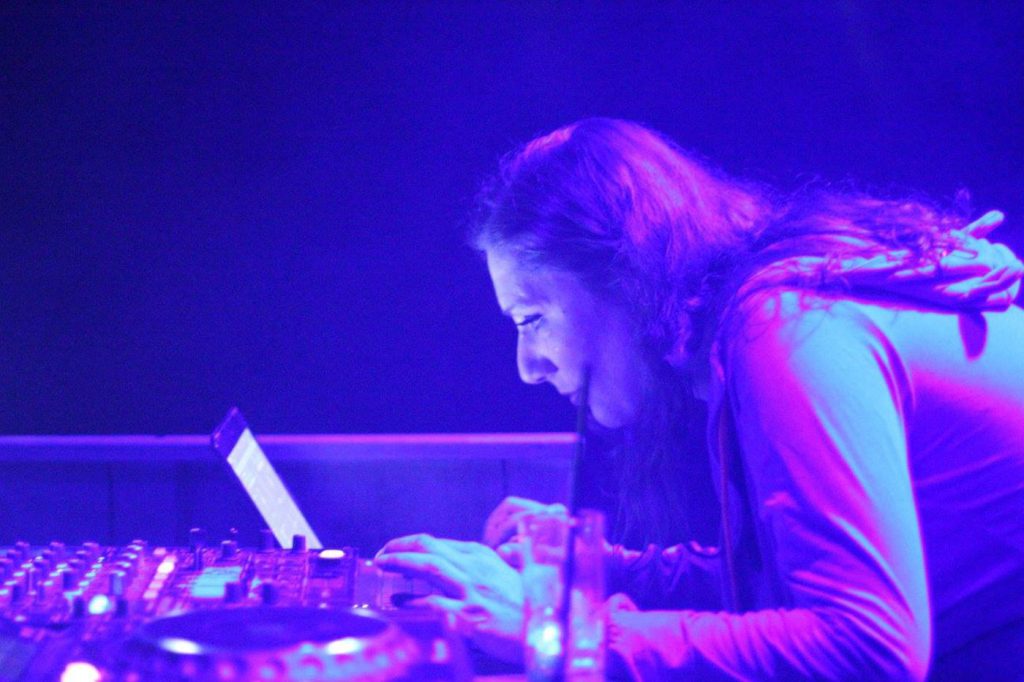
Club 14 in Talimhane, one of Ceylan Çaplı’s legendary clubs in the 90s, was one of the first places she started going to. While the musical selection at the club consisted primarily of electronic dance music until the early hours of the night, the closing was done with Turkish pop. This remains a common practice: returning to the songs that everyone knows. Şevval started to add her own musical touch to the parties when she played the openings of solidarity parties of the Lambda Istanbul Association. “At first I was playing lubunya music. House tracks, queer anthems everyone knows, for everybody to have fun. But over time, this changed as my sets got longer. My music has also changed. I have also played in places that allow me to do other music. Nobody was ever able to put any restrictions on my music. I can do what we call ‘queer touch’ where you put something very different into the mix in places like Şahika, where I have been playing for a long time.”
The first place where Şevval could develop her DJing skills and sensibilities was a venue called Şarlo, where she started playing regularly in 2013. Located on a terrace in Mis Sokak, Şarlo was one of the first places where she felt queer and safe. The venue, run by DJ Melis Nots, had become a place which trans people and women visited frequently, although it did not explicitly have a policy to incentivize this. „If half of the women in a venue can take off their clothes and have fun safely, then this is a political indicator“, she adds.
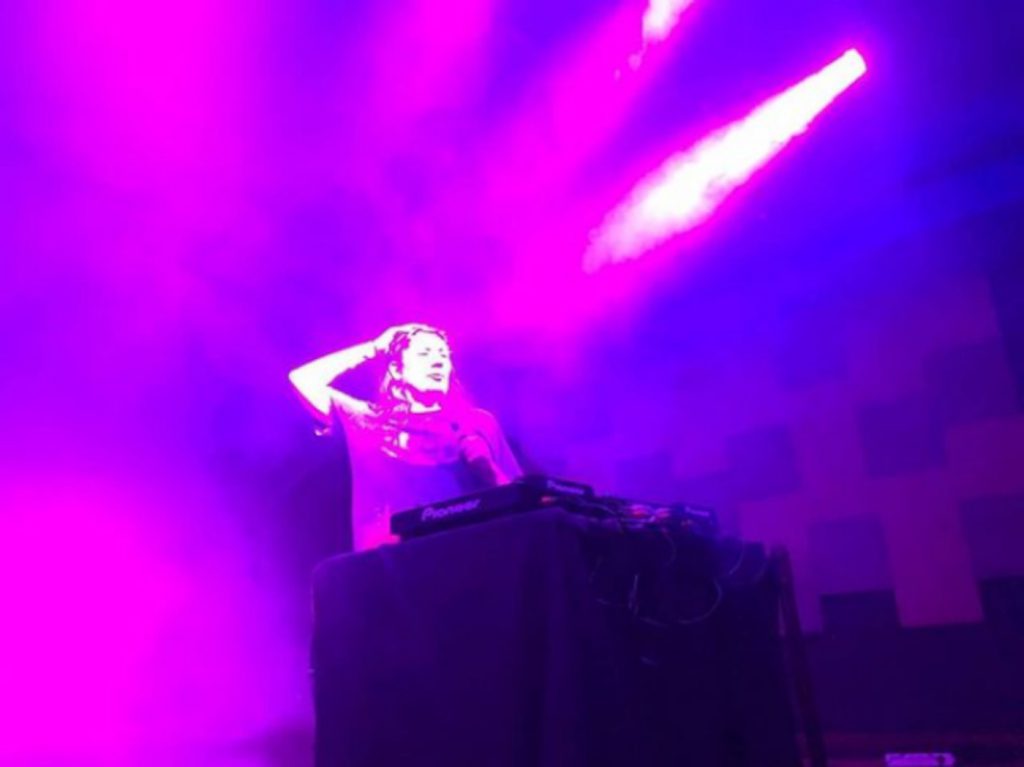
Djing professionally has helped Şevval to develop her music as well as coming to understand different venues may have different needs and conditions. She talks about her first night playing at Şarlo, laughing: „I said, ‘I’ll present my entire archive’ and I played minimal techno for four hours. At midnight, the floor was empty. Melis got very angry. As I was saying ’I can’t play commercial music, honey, I can’t play Rihanna or something,’ Melis unplugged my cable. ‘You are going on YouTube now and play Rihanna. There’s nobody left,‘ she said. Afterwards I learned there is a term, ‘crowd pleaser.’ I just don’t like playing songs that the audience likes back-to-back. Because then you’re doing something commercial and that doesn’t reflect me. But on the other hand, where you play and who you play to is very important. I can play minimal techno for four hours, but I don’t want people to have a nervous breakdown in a place where the music does not fit the general atmosphere.”
At this point, listening to live performances is a source of inspiration for Şevval when playing her own sets and communicating with the audience during her performance. “You are trying to express a feeling. How that feeling begins, progresses, and ends is important to keep in mind. I always keep an eye on the dancefloor.” When I ask what the turning point of queer nightlife in the last decade was, Şevval emphasizes her time at Üzüm Pub after Şarlo (had closed/she left Şarlo). “We blew up there. It was a very small place, but I had the most fun at the parties there. On top of Şarlo, Üzüm added something else, a space with queer political principles. Harassment was never tolerated, the staff intervened immediately. As it was open, I was playing there every week and I had the best time. I played until 7 am in the morning many nights.”
Making Waves and New Connections
Their collaborations with Melis Nots in Şarlo soon gave birth to the party collective Queerwaves, founded in 2014. “Sema (a.k.a. Samy Winehouse), Salih (a.k.a. Deepinoza), Melis and I were friends who were already having fun and partying together, and we had a similar taste in music. At first, we started with the idea that we can play the music we want to hear, party with friends we love and drink free alcohol. At the end of a year, we organized ten parties in a row where call-outs and fights in the community were abundant, but no problems occurred at our parties. The scrutiny of Melis had a great impact. We had a lot of people attending our parties without having any problems despite not having strict rules. That gave us enormous strength. This situation also created trust for the people coming. People came knowing that we would have a nice night without any incidents.“
The collective is still active today and has organized many parties with different concepts in different venues over the years while bringing out new DJs. During the pandemic, Queerwaves also started a solidarity campaign named Support Queer Nightlife Workers in Istanbul. “We were able to raise money, being able to support ten people outside of Queerwaves for four months. This means a lot. We have shown to those who are not lubunya that this is a political organization,” says Şevval. The good results of their efforts have encouraged the formation of many other collectives like Club Coweed that has been connecting many artists and musicians together with their audiences during the pandemic in a digital club they created. With parties being attended by about a hundred people at a time, community members came together and supported each other against both the financial and emotional difficulties caused by the pandemic.
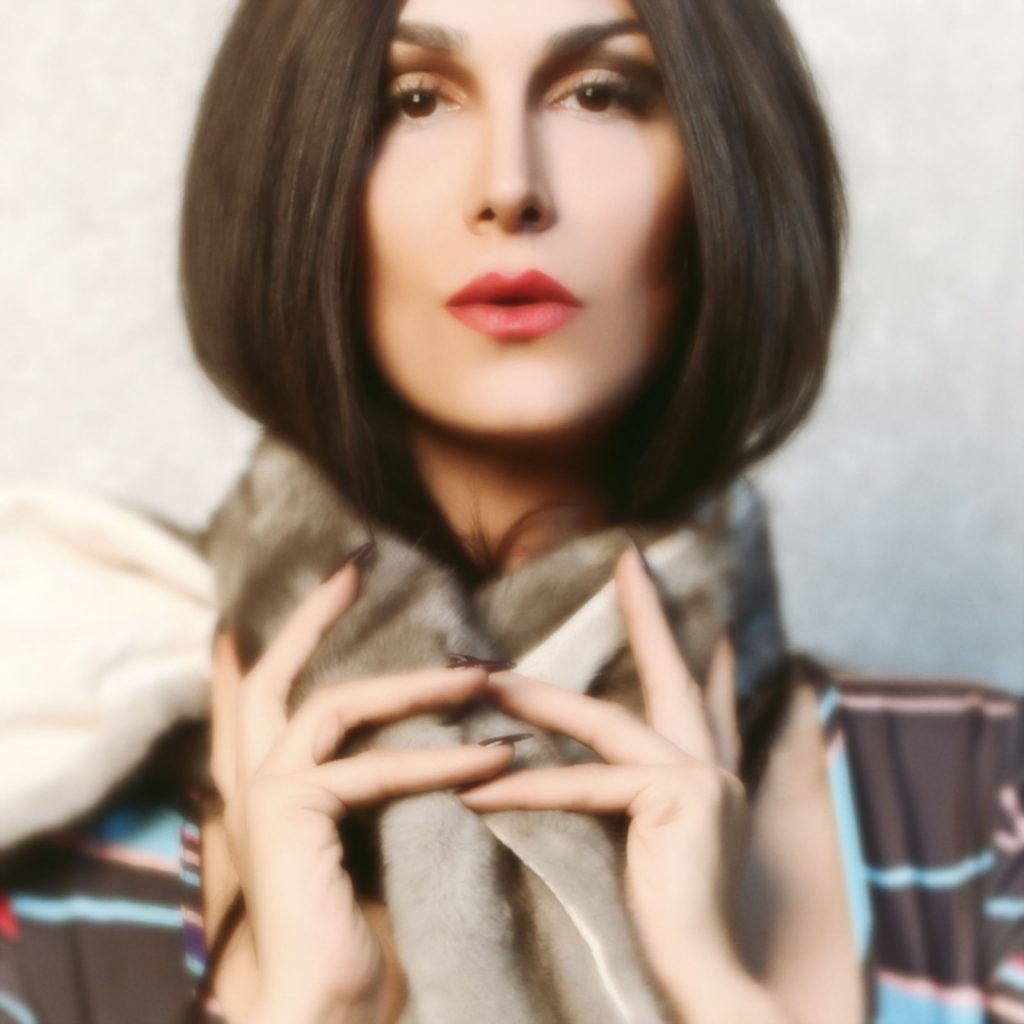
Another fruit of the pandemic period is “ALAN2020,” a track co-produced by Mx. Sür and Kübra Uzun a.k.a. Q-bra. The duo did everything together and completed the song within three weeks, being able to release it on the day of the Istanbul Pride Parade. The parade could not be held physically this year, but it was still celebrated by a considerable group of people on Mis Street. The song, which was played for the first time on Mis Sokak that day, turned out to be the soundtrack of many other projects this year: The video of Dönme Pedal collective, Eda Birthing’s show and many more individual videos. “’ALAN2020’ is constantly creating spaces for itself or someone is including ‘ALAN2020’ in their own realm,“ explains Uzun. The combination of Mx. Sür’s ballroom-inspired house production and Q-bra’s rap vocals on top resulted in a highly memorable and empowering protest song. Mx. Says explains the birth of the track: “I woke up saying ‘Kübra, what would it be like if you rapped?’ Such ideas come to me in the morning between being asleep and waking up.” Kübra, on the other end of the phone, has experienced another enlightenment that morning: “Actually, I am not someone who writes lyrics, but I suppose that morning, the muse of (famous songwriter) Aysel Gürel visited me. I wrote the lyrics in 20 minutes. It created the genre of ‚queer Turkish rap“. “I am not a DJ either”, clarifies Kübra. “ I am not in a fixed place. All places are mine or I get involved in every place in a different way. Hence, our track is called ALAN2020″, explains Kürba since „alan“ means „space“ in Turkish.
Mx. Sür’s history with electronic music and DJing dates back to 2007. After being discovered and supported by DJ Beyza, their professional life as DJ continued with playing in many clubs in Istanbul, music festivals and all parties of the IF Istanbul Film Festival. One of the most important turning points of their life was joining the core team of the club named Wake Up Call, where he was the resident DJ from 2012 until 2015. “There was already an electro-queer culture in Istanbul inherited from clubs such as Dirty, Machine and Dogzstar. There were friendships and networks formed at those clubs. Compared to other underground venues, Wake Up Call created a more professional underground attitude with its sound system, atmosphere and guest DJs.“
Addressing a mixed audience, Wake Up Call set a different mission for listening to electronic music and dancing, both with the symbols and language it used as well as, and with monthly social responsibility projects. Mx. Sür also organized two regular queer parties, one being TuttiFrutti and the other „Xes,“ organized together with the DJ Mr. Ties, who at that time was organizing Berlin’s seminal Homopatik parties. “Those were good times. I was also playing at Homopatik once in two or three months, for two years. We could all travel. Wake Up Call came out in a beautiful moment. And it ended well.“ Gentrification also hit the building where Wake Up Call was located, and like Leyla Alt, there is a hotel now in the building that used to hold the club. „They said, they will build a boutique hotel and they kicked us out of the building.“
Losing Spaces, Gaining Strength
Mx. Sür pursued their goal of bringing the underground sounds together with the audience in a comfortable and non-discriminatory environment at Suma Beach with the party series Come to Mama. “Because Suma Beach was a bigger project, the communication was not as sharp as Wake Up Call, but we continued with the same spirit. Parties lasted for 48 hours without stopping. Whereas at Come to Mama happened between 2018 and 2019, the focus was more on entertainment rather than social responsibility. There, however, we would set dress codes and did not charge entrance fees in order to make the party more accessible. I wanted to offer people a safe space and do it with really good music. Come To Mama was a queer party series driven by the underground spirit, where world-class guests came and the right electronic music was played.“
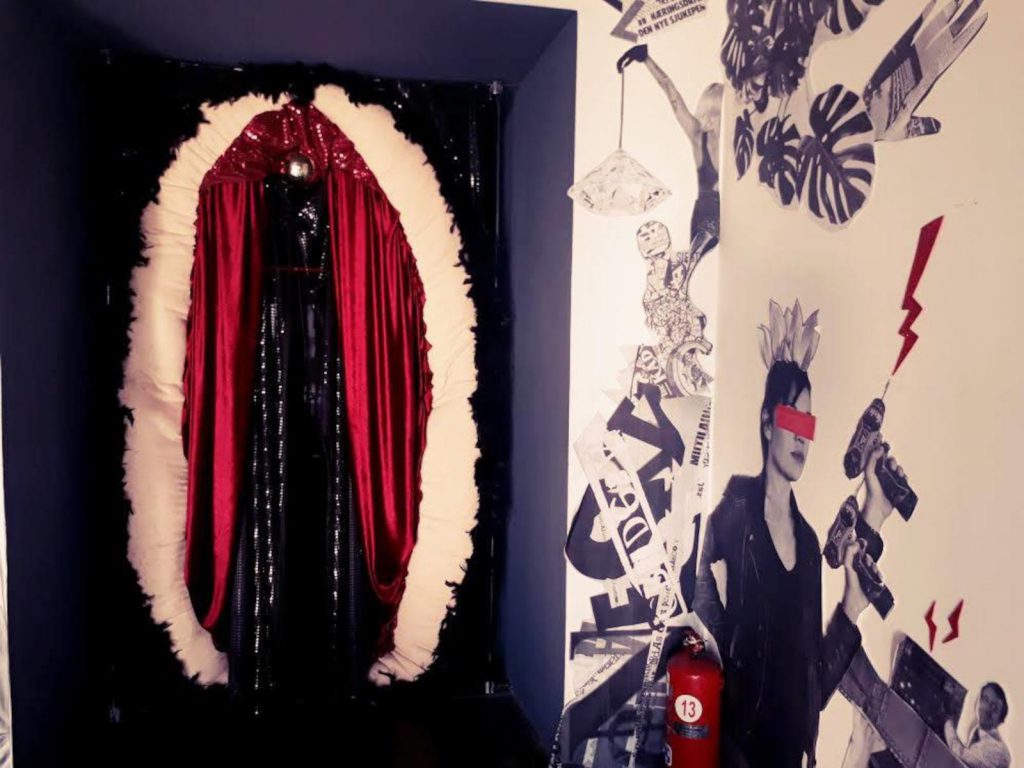
However, the depreciation of the Turkish lira against the Euro, the decline in people’s purchasing power, and the shrinking of the middle class made it impossible to host parties like the ones at Mama. “People started to think that a party without a foreign DJ cannot be good, although the concept was strong and good. I think we as promoters created this perception. It is very difficult to get sponsors if you are a queer countercultural formation and you are not attracting big crowds. We wanted a sponsor, but we did not want it to be allowed to take pictures inside the club in order to have our guests feel more comfortable and not spoil the spirit of the party. But sponsors want photos to be taken in front of their logo. I wonder if we pushed a little too hard. I don’t even have a decent photo for remembering those nights,” laughs Mx. Sür. “DJs also became global superstars at that time. Booking fees were more affordable during the time of Wake Up Call. Suddenly the fees increased. The fact that promoters turned to selling DJ names rather than selling parties made things even more difficult.“ Mama also had to shut down for these economic reasons.
Due to the pandemic, most of the venues where Mx. Sür used to be playing regularly are still closed. “They are gone now; I don’t know if they closed forever.” This change in the routine of life has given life to a project they have long dreamed of making: their own label named XSM Recordings (Ex-stepmother Recordings). Mx. Sür says that they do not want to fall prey to the pressure of constantly releasing something on the label through which also the “ALAN2020” single was released. “It has to be the right track and the right person. The purpose of the label is to make the city’s Others heard through music and visual arts”.
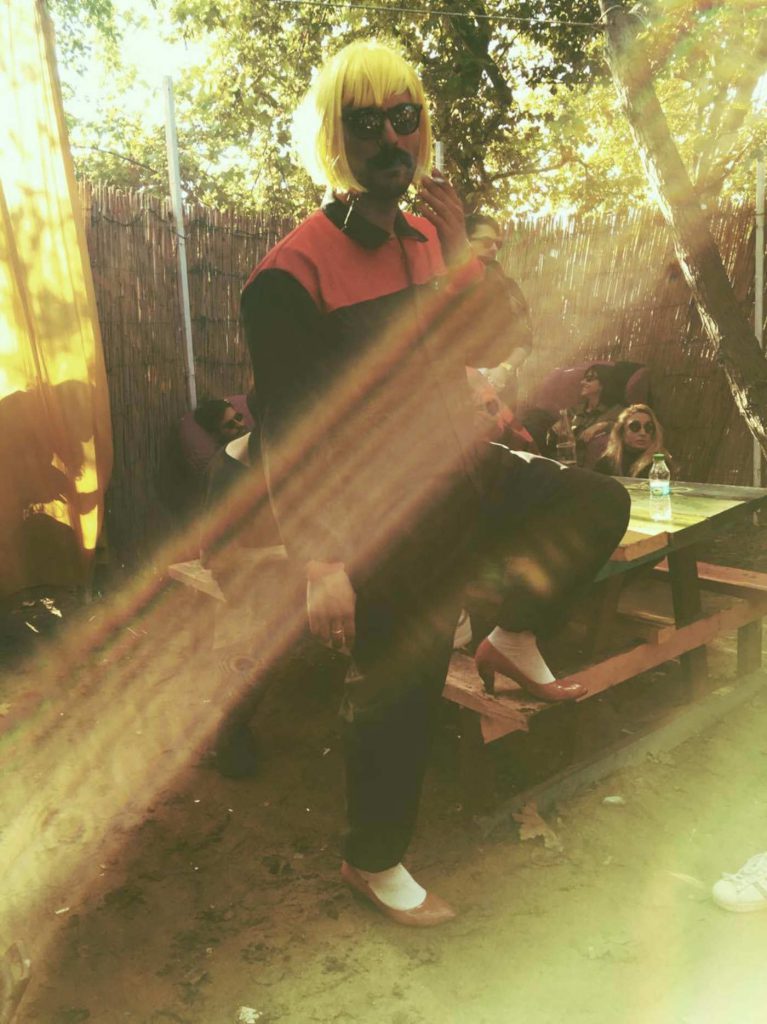
In the absence of physical activity, Kübra Uzun has also turned to different projects. While continuing the coordination of the online project “Through the Window” which hosted many queer artists on the other hand, Kübra is preparing for the performance they created with Onur Karaoğlu for Volksbühne theater in Berlin, A Trans History Sung. They are also working on a medium length film project with the same name. “I tell the story with songs both in the performance and in the film. It will be a self-portrait set on the day of the Pride Parade. I will sing all the songs with an orchestra.“
While emphasizing the importance queer spaces gained during the last decade, they see the obstacles created by state policy as a serious loss. “The queer nightlife of Istanbul in the 2000s was very different compared to the spaces and collectives emerging after the Gezi protests in 2013. At that time there were gay cafés and bars. After the Gezi protests, there was a generation that had grown up with social media. And we started to have more spaces of our own. We have gained Şahika and the previous venues of Üzüm, Anahit Sahne and Bigudi. But not just places where we could dance. Places emerged where we could play, go on stage, places that were our own. We are more visible, and we create our space with each other. The Dudakların Cengi performance collective is also very important,” says Uzun.
“Today, queer art has evolved into performance. It is a generation evolving very fast. Unfortunately, we are deprived of these spaces because of the pandemic. We do not have any social security. The income of many young artist friends who are not in contact with their families was reset to zero with the pandemic. DJs do not have an association or a union. Nevertheless, we are in solidarity with each other with the Cengaver Solidarity Fund and Queerwaves‘ solidarity campaign. But we do not know what 2021 will be like. I started looking for projects and trying to expand them in order to include others. But more needs to happen.“
Although live performances may be absent, many musicians continue their music and projects. The music of Ceytengri, Çiçek Çocuk, Burakbey and Jtamul, both danceable and at times experimental, relates to the existence of the places mentioned above. The places and the aesthetic perception they create also determines how the music is experienced and interpreted. “Sometimes a move you make on stage can be very political. A certain way of life and music are overlapping. Better things will happen. Musically, we are liberated as queers and producing our own stuff,” says Deniz Deniz. They are hopeful about the period after the pandemic: I’ve closed venues before and opened again. I will do new things as well. I still have many dreams about the nightlife. For example, I want to open a queer venue where drag queens are on a fixed salary. I will not do my jubilee until I have achieved this.
This article is part of the Global GROOVE: Electronic Music Journalism series, hosted by GROOVE in collaboration with the Goethe-Institut. Read all other articles here.
Ilgaz Yalçınoğlu is a music researcher based in Turkey and Berlin. Interested in sonic knowledge production, he explores different methods and approaches in his research.